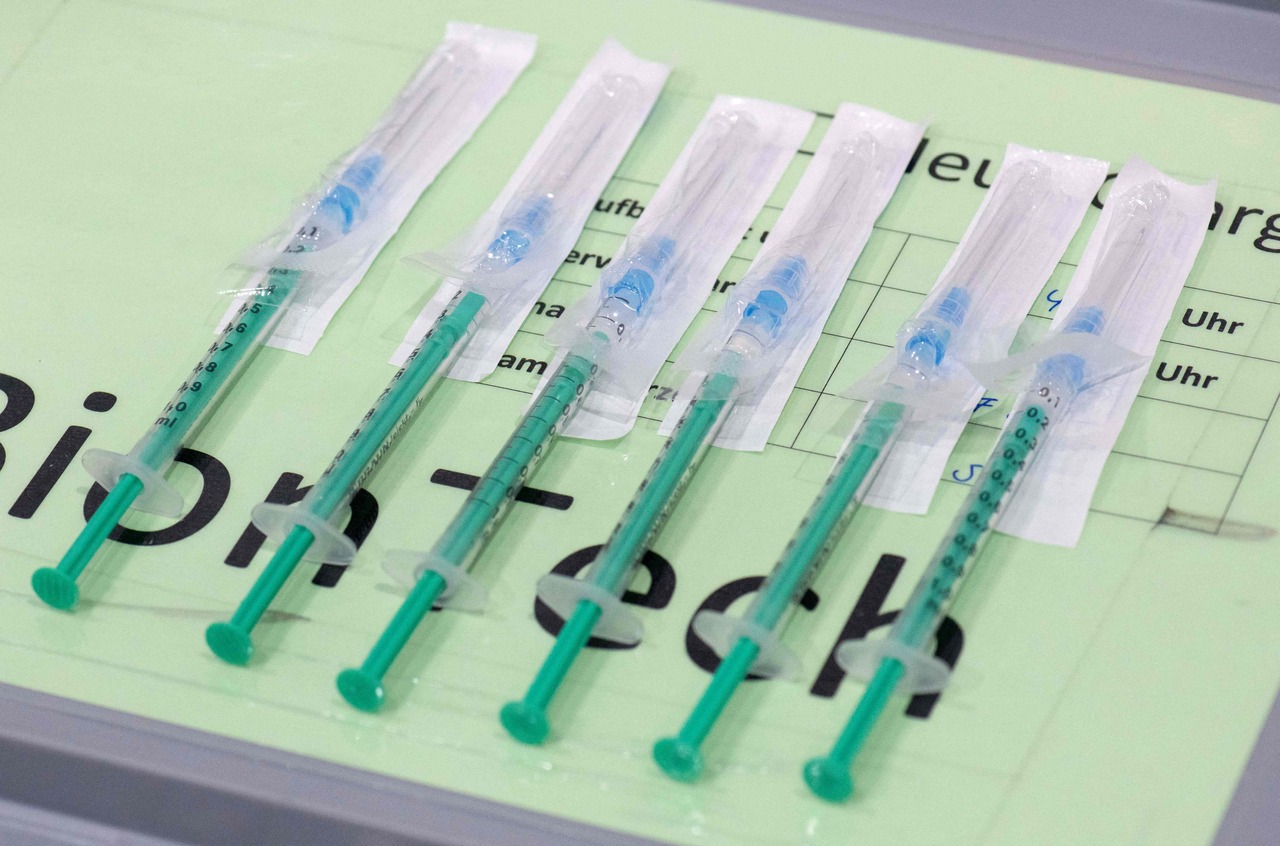Ignoring WHO call, major nations stick to vaccine booster plans
Sign up now: Get ST's newsletters delivered to your inbox

Pfizer has said boosters are most likely needed due to waning antibody responses, particularly after six months.
PHOTO: AFP
Follow topic:
PARIS/BERLIN/SANTIAGO (REUTERS) - Germany, France, Israel and Chile will go ahead with plans to administer Covid-19 vaccine boosters, disregarding an appeal by the World Health Organisation (WHO) to hold off until more people are vaccinated around the world.
The decision to press ahead with booster shots despite the WHO's strongest statement yet on the matter highlights the huge inequities in responses to the pandemic as richer nations ramp up programmes to protect citizens from the more infectious Delta variant of the coronavirus.
French President Emmanuel Macron said France was working on rolling out third doses to the elderly and vulnerable from September.
Germany intends to give boosters to immunocompromised patients, the very elderly and nursing home residents from September, its Health Ministry said.
Israeli Prime Minister Naftali Bennett in a statement urged older citizens to get a third shot after the government last month kicked off a campaign to give booster doses.
"Whoever is over the age of 60, and has yet to receive the third dose of the vaccine, is six times more susceptible to severe illness and - heaven forbid - death," Mr Bennett said.
In an online discussion with the public and journalists, Mr Bennett said Israel's drive to give third doses of the Pfizer-BioNTech vaccine to people aged over 60 would provide vital information to the world on combating the Delta variant.
Israel, with a population of 9.3 million, was a small country whose vaccine use "doesn't really affect the world supply significantly", he added.
WHO chief Tedros Adhanom Ghebreyesus called on Wednesday (Aug 4) for a halt to boosters until at least the end of September, saying it was unacceptable for rich countries to use more of the global vaccine supply.
High-income countries administered around 50 doses for every 100 people in May, and that number has since doubled, according to WHO. Low-income countries have only been able to administer 1.5 doses for every 100 people due to lack of supplies.
"I understand the concern of all governments to protect their people from the Delta variant. But we cannot accept countries that have already used most of the global supply of vaccines using even more of it," Dr Tedros said.
Germany rejected those accusations, saying it would also donate at least 30 million vaccine doses to poorer countries.
"We want to provide the vulnerable groups in Germany with a precautionary third vaccination and at the same time support the vaccination of as many people in the world as possible," the Health Ministry said.
Following Dr Tedros' comments, the White House said on Wednesday it was prepared to provide booster shots if needed, suggesting it would not heed the WHO's call either.
Pfizer has said boosters are most likely needed due to waning antibody responses, particularly after six months.
US health regulators have said that more scientific evidence is needed to be certain boosters are needed, but have indicated that they believe a third shot may be needed for people with compromised immune systems.
Mr Macron's government is trying to step up France's vaccination programme as the country faces a fourth wave of the virus and street demonstrations in protest against the government's Covid-19 policies.
France and Germany have so far given at least one dose of a Covid-19 vaccine to 64.5 per cent and 62 per cent of their respective populations, with 49 per cent of the French and 53 per cent of Germans fully vaccinated.
Similarly, Chile will begin administering a booster shot to those already inoculated with the Sinovac Covid-19 vaccine, President Sebastian Pinera said on Thursday, after studies showed that the initial two doses lose some effectiveness after several months.
Chile launched one of the world's fastest mass inoculation campaigns against Covid-19 in February and has now fully vaccinated more than 60 per cent of its population, predominantly with Sinovac jabs.
"We have decided to start a reinforcement of the vaccination of those who have already received both doses of the vaccine Sinovac," Mr Pinera said in a televised address.
The country will begin administering an additional dose of Oxford's Astrazeneca vaccine on Aug 11, beginning with citizens over 55 who received their shots before March 31.
Health Subsecretary Paula Daza said domestic and international studies suggested that the boosters would help reinforce immunity, but added that Chile had already donated vaccines to its neighbours and would continue to help as needed.
"We are always analysing the recommendations, and obviously the possibility of cooperating with other Latin American countries," she said.
Data released by the Chilean government on Tuesday suggested that the Sinovac vaccine's effectiveness at preventing symptomatic infection among its recipients fell from 67 per cent when measured between February and April, to 58.5 per cent when measured again at the start of July.

